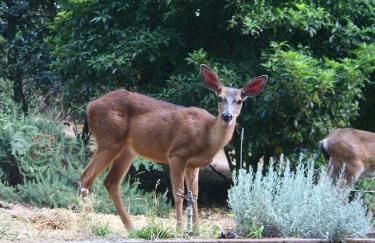
Every year, millions of Americans hunt and fish in the woods. They’re lured by the thrill of the chase, the beauty of the outdoors and the desire to preserve our hunting heritage—and they’re willing to pay for the privilege of hunting.
In fact, hunting is huge business across the country. Americans spent more than $70 billion on hunting and fishing in 2006 alone, according to the U.S. Fish & Wildlife Service’s most recent (2006) National Survey of Fishing, Hunting, and Wildlife-Associated Recreation.
- how to promote your lease
- how to develop a leasing agreement
- the legal and financial ins and outs of leasing
- how to monitor your property and lease agreement
- where to find help with setting up your hunting lease
Given the demand for quality hunting experiences and the shrinking supply of available hunting land, many woodland owners are using hunting leases as a low-stress way to profit from their woods. If your land is rich in wildlife and offers good amenities for hunters, you may want to consider hunting leases.
With the right information and preparation, your hunting lease can be a rewarding and enjoyable experience for everyone involved.
Find out more
To get a good sense of hunting and fishing patterns and expenditures in the US, take a look at the results of the 2006 National Survey of Fishing, Hunting, and Wildlife-Associated Recreation, a project of the U.S. Fish & Wildlife Service.
Would a Hunting Lease Work on My Property?
A hunting lease is an agreement between you (the lessor) and hunters or anglers (the lessees) that allows them to visit and hunt on your land for a specified time period. Your lessees pay you per acre or per lessee for their hunting experience.
Not every property lends itself to this kind of arrangement, and not every landowner will want to take it on. These simple questions can help you decide if hunting leases are right for you:
- What kind of game do you have on your property, and how much?
Abundant and desirable game species are musts for a hunting lease. Leases for certain game animals, such as waterfowl, can command higher prices. If you have more than one game species on your land, you’re in luck: you could work around the seasons and, for example, lease to deer hunters in deer season and turkey hunters during turkey season.
If your desirable game species are sparse, you may need to improve their habitat and increase their populations before leasing.
- How big is your property?
There isn’t a minimum size for a hunting lease—in fact, some hunters prefer smaller plots. But a larger plot of land may offer more wildlife, more solitude and a variety of different habitats, which are traits that many hunters seek.
- What are your financial needs?
 Caught red-hooved.
Caught red-hooved.
Hunting leases can provide steady supplemental income, often enough to offset habitat improvements or pay property taxes. But they also take work: you have to promote your property, connect with your lessees, manage your wildlife, etc. You’ll have to decide if you think the work is worthwhile.
- Is wildlife damaging your land?
Damage from wildlife can make hunting leases doubly beneficial. If deer are damaging your seedlings, for example, then opening your land to hunters who can control the deer population can be as helpful to your land as it is to your pocket.
If this is right for you...
Hunting leases can be easy and lucrative, but they can require quite a bit of multitasking.
If you decide a hunting lease will work for your property, the most important thing is to create a healthy habitat that attracts game to your property. Read about how to do this in our guide-- found in the Enjoy it/Hunting/Managing for wildlife section.
You will also need to promote your property to attract hunters, develop leasing agreement, get the necessary insurance, and monitor your lease agreement.
The full article can be found at: https://mylandplan.org/content/how-profit-your-land-hunting-leases
This article was shared by permission of the American Forest Foundation.

